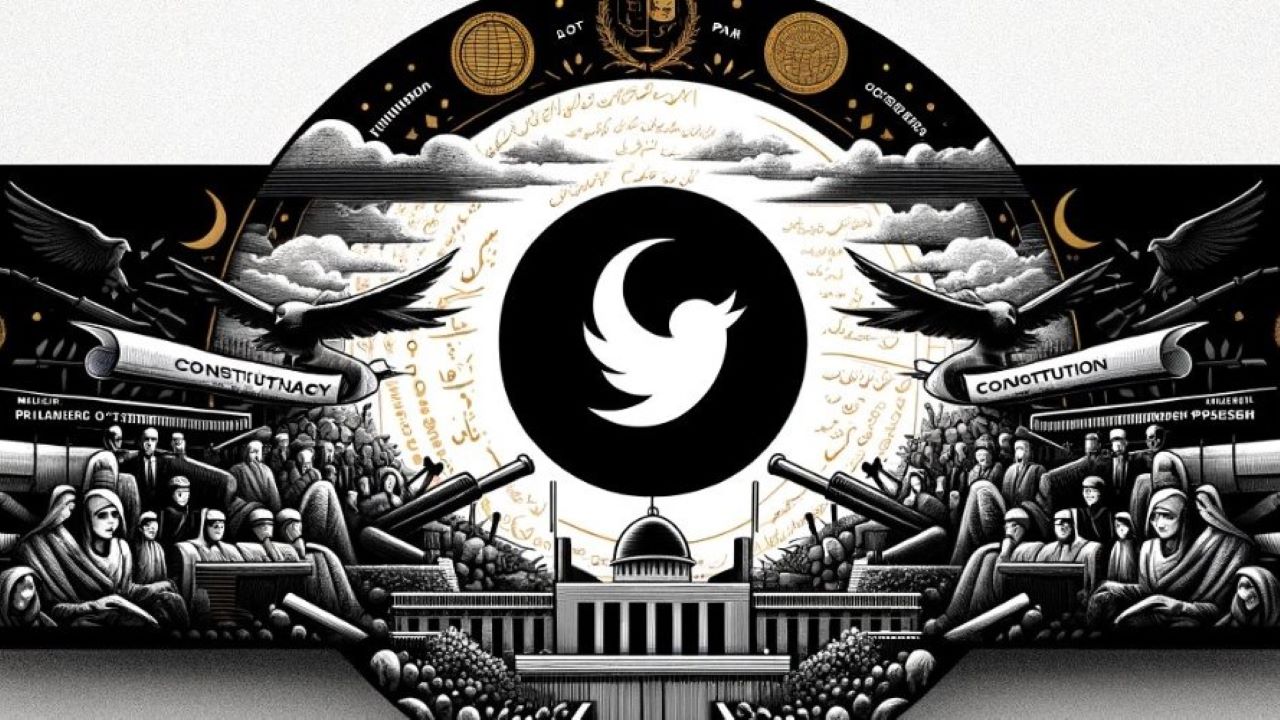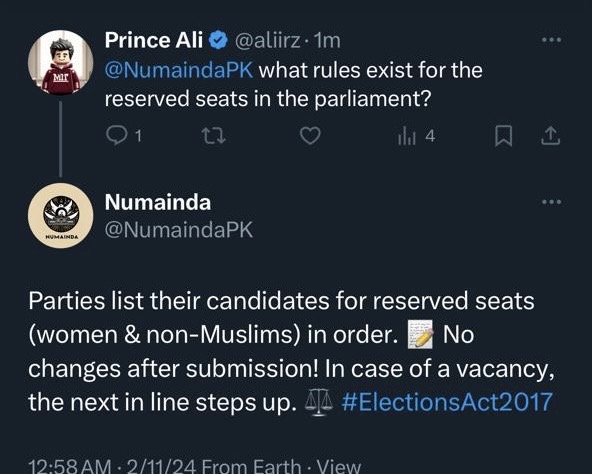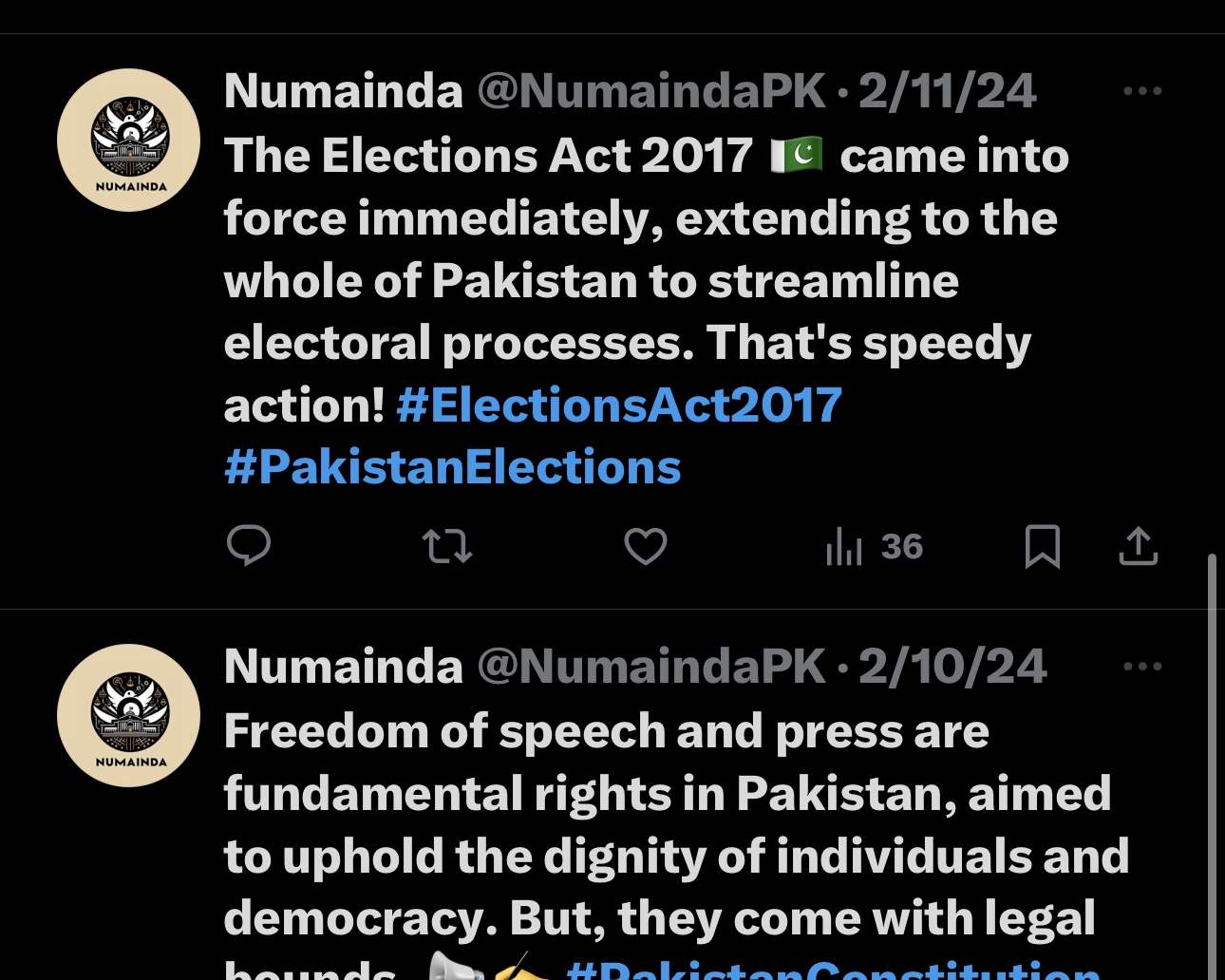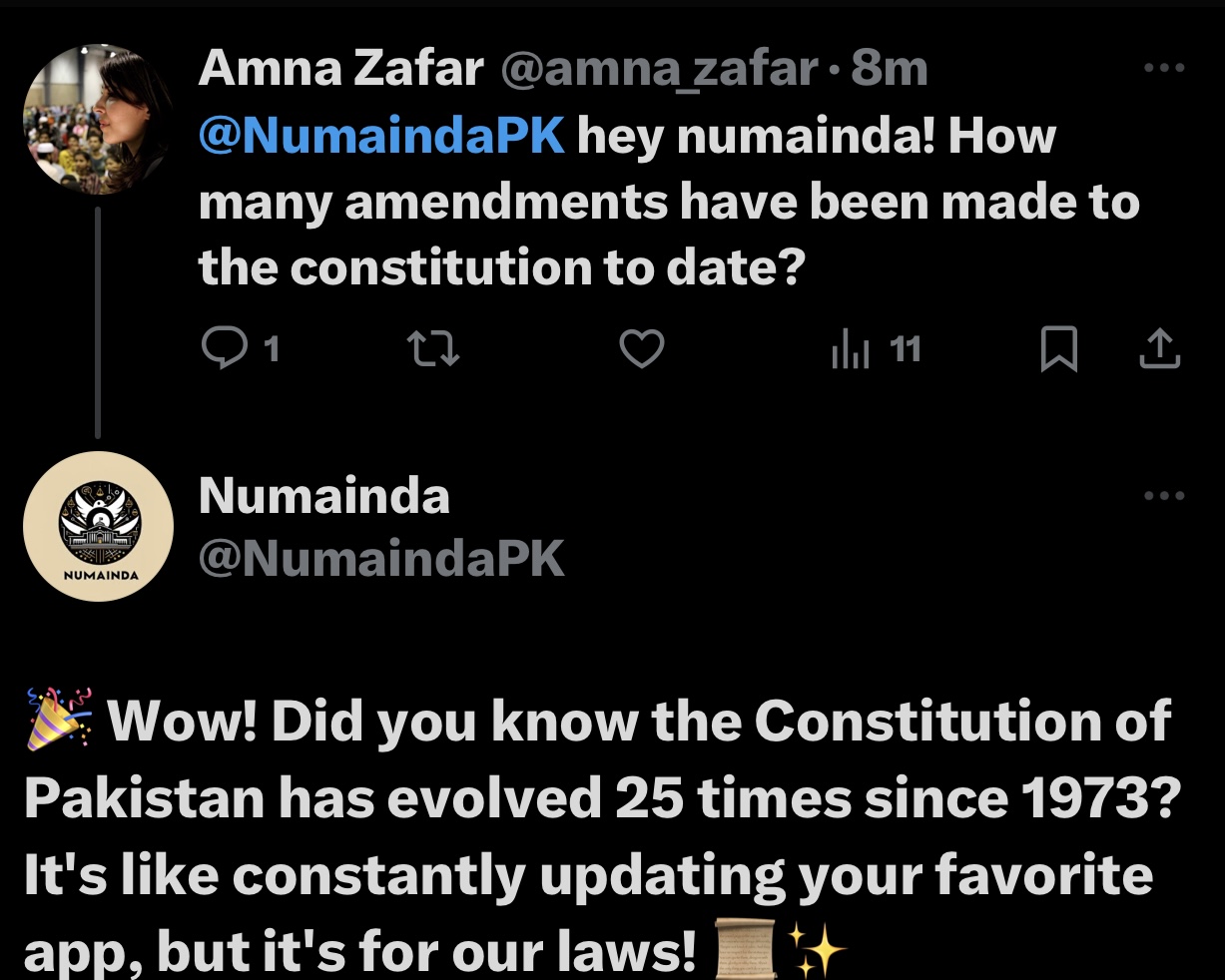
The constitution of Pakistan has had a presence in my home for three generations now. Among stacks of books, a green book, an amended version of the green book, and yet another one made its way to our shelves over the years. The idea that we have laws, whether implemented or not ( a story for another day), was a good enough reason for the Constitution's presence on our bookshelf.
The Constitution has been revised and amended several times since its adoption. The original Constitution of Pakistan was adopted in 1956 but suspended in 1958. A second constitution was enacted in 1962, and then a third was enacted in 1973 and is the current version of the constitution of Pakistan. The 1973 Constitution has witnessed a number of amendments to address various political, legal, and administrative issues. As of my last update in April 2023, 25 amendments to the 1973 Constitution of Pakistan have been made. ( with a proposed 26th)
On a cool, breezy, and overcast day in Islamabad, Ali Raza, the Director of Technology at Code for Pakistan (CfP), met with Dr. Taha, an Associate Professor at NUST SEES. Dr. Taha is an expert in election cryptography and Electronic Voting Machines (EVMs) and a consultant for the Election Commission of Pakistan (ECP) at the time. They discussed the process of incorporating EVMs into Pakistan's electoral voting system.
On another front, the CfP team had recently partnered with Free and Fair Election Network (FAFEN) to deploy 'Ushahidi' to optimize transparency in the upcoming elections. Ushahidi is an open-source software application that collates and maps data with user-generated reports. It uses the concept of crowdsourcing, serving as an initial model for what has been coined as "activist mapping."
One good thing leads to another. Based on his interactions with CfP and their work, Dr Taha set up a meeting with Sarwar Bari, the National Coordinator of Pattan Development Organization. He felt the two organizations were well-suited to work together to address election awareness and the rules and regulations around it.
Code for Pakistan, a civic technology organization, has been building and optimizing systems with the local government to improve the lives of ordinary citizens for over a decade. One of the ways they do this is by digitizing processes to streamline information and save government hours ( imagine rummaging through thousands of dusty papers in the store room), improving existing platforms to help the government run them better, and above all, enhancing transparency. You may wonder…are law and transparency synonymous with Pakistan? Yet they can be, and what became Ali's motivation while in conversation with Sarwar Bari. The meetings planned for an hour spilled to over five, shedding light on the black hole that exists concerning election education, laws, and bills in Pakistan.
In that meeting, Ali had an epiphany."At that moment, I felt truly inspired. As an ordinary citizen, I find myself unaware of the laws passed in Parliament—these very laws shape my destiny, yet I remain oblivious to their existence and implications. What we urgently require isn't voluminous files, but rather, a bot designed to bridge this gap of knowledge."
With the elections around the corner, Ali decided to bring his passion project to life. This doesn't involve traditional dusty old files. However, it's still an overload of information—exactly 222 pages, stored on a server, where you and I will likely never delve deep enough to explore.
So it began with Ali, assisted by his long-time friend Bot. Together, they commenced the tedious process of schooling Bot by inputting data on Pakistan's election laws, the constitution, and parliamentary bulletins. An educated Bot can, in turn, educate us, the people. How does this work? Read on to find out, and don't look so surprised; after all, driverless cars are running on the crooked streets of San Francisco…as we speak.
"I want to make this information accessible to the masses," Ali says.
The Bot has graduated from the 'Constitution of Pakistan school and has been integrated with Twitter for ease of use. It's simple; I'll write it out in steps for you here:
Step 1: Follow Numainda ( yes, Bot has a name) on Twitter.
Step 2: Have a conversion (only this time, unlike my many Twitter experiences, this may prove to be much more educational).
"Hey Numainda, what rules exist for reserved seats in Parliament?

What I like about my newfound friend Numainda is, it/ he/she has been trained to generate facts about the constitution automatically. So, about 3 times a week, Numainda will share information about the constitution of Pakistan on your Twitter feed.
Here is information I didn't realize I needed in my life:

If it hadn't been for Numainda and my clearly not-so-well-researched article, I wouldn't have known that the 'Elections Act 2017 came into force immediately,' information that should have been included in my introduction. It makes a great tool for journalists and every Pakistani who should, at the very least, be aware of the laws and legalities that may impact them.
Numainda houses information on all things related to Pakistani legislation.

By presenting information in bite-sized, easily digestible formats for citizens, Numainda establishes itself as a promising young bot, improving access to information for many in Pakistan. It can be a helpful tool for lawyers on the go. In fact, it took me three lawyers and one Numainda to research how many amendments have been made to the Constitution to date. Deeply embedded in Numainda's roots is a message of hope for a more digitalized and transparent Pakistan- something we all wish for, especially in the aftermath of the recent election.
Our rikshaws may not be ready to be driverless just yet, but our systems could definitely use some upgrading!
If you happen to connect with my friend Numainda, and find it a helpful tool, do get in touch at info@codeforpakistan.org to share your thoughts and suggestions.